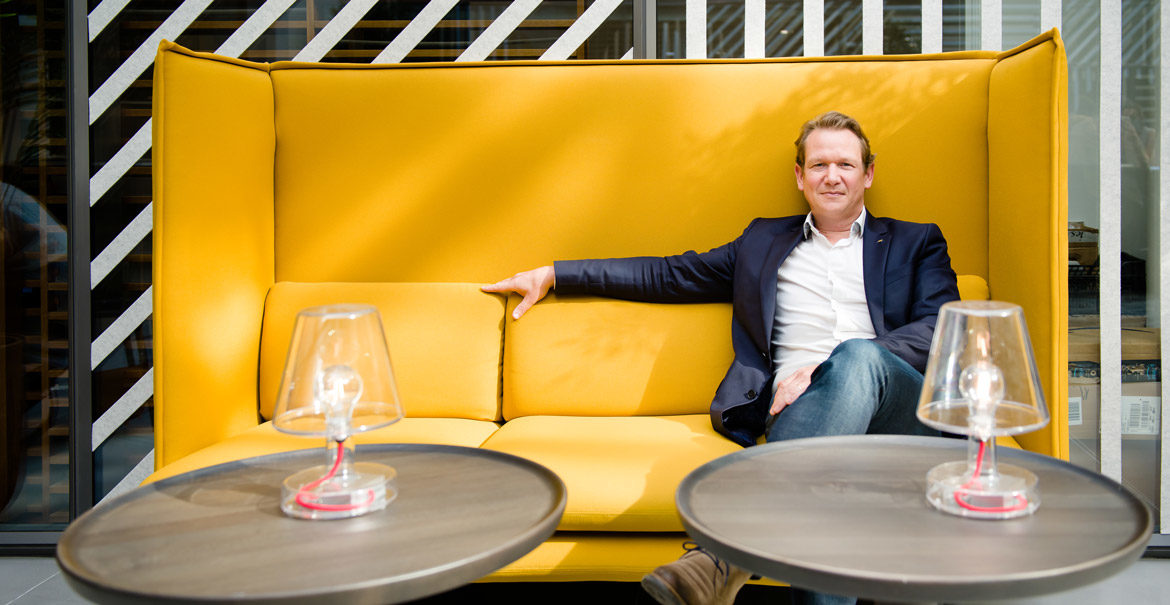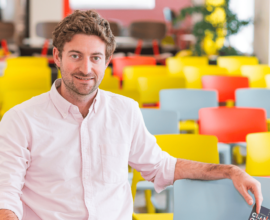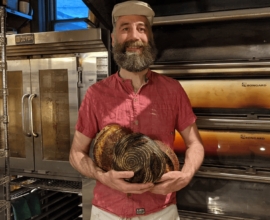Vincent Roux
The entrepreneur who pays it forward
![]() Reading Time: 9 minutes
Reading Time: 9 minutes
SERIAL ENTREPRENEUR & SUPER-CONNECTOR
Aged six, Vincent was already doing business from his parents’ front door. At 23, he became the first student to have their company incubated at Audencia… and that was before he’d even graduated. He co-founded Intuiti, a digital marketing agency which now boasts an impressive brand portfolio. In 2016 he launched Fifty Truck, a start- up that uses AI to optimise the costs and emissions of the transport industry. He is now co-founder and VP of marketing at O’Code, whose mission is to protect the identity of individuals and objects by means of blockchain technology. Extremely well connected, Vincent is president of “Réseau Entreprendre Atlantique”, a network set up to guide start- ups in the western region of France.
A quick glance at Vincent Roux’ flawless CV and you might picture him as the stereotypical ambitious whizz kid turned daredevil business shark, with a flashy lifestyle and Silicon Valley in his visor. Except there is so much more to this man than what comes up on his LinkedIn profile. Whoever sits down for a coffee with him is struck by his profound humanity. He makes business rhyme with balance and wellness. A devoted family man, most days he is at home by 6.30pm. He is a prominent local figure, deeply rooted in the Atlantic region (“Nantes, the new Silicon Valley, but with a better lifestyle”), and a long-term ally of Audencia. He spends a large part of his day giving pro-bono advice to junior entrepreneurs and he lives and breathes the “purpose before profit” mantra.
Vincent speaks to us from the heart about the hidden sides of entrepreneurship, his obsession with giving back, and why he believes stereotypes about entrepreneurs are detrimental to our society.
What were you like as a child?
I was never the academic type. School didn’t interest me, and following instructions wasn’t my forte. You could usually find me clowning around. I have always been curious though. I was constantly developing a passion for a project, and then feeling the urge to move quickly onto a new one. This is a personality trait that I have kept to this day. And I’ve been an IT geek from the age of 9.
During my childhood, we moved a dozen times, around the country. All this moving around made me adaptable to change, I think. My first role model was my dad, a self-made businessman who started out as a courier and ended up as a general manager for a gardening tools company. There’s this memory coming back to me now: one day, aged 6, I decided to set up a stand in front of my house, with merchandise from my dad’s company. It had never crossed my mind before, but I suppose this was actually my first commercial venture!
Your Audencia journey was somewhat unconventional, to say the least. Tell us about those years.
Lazy as I was, I didn’t follow the more elitist “classe prépa” path. I was studying management at the IUT in Nantes and each time I walked past what was ESCNA at the time, I was more and more determined to become part of it. That’s when I finally got down to studying. In 1998, I scraped through the written exam and obtained a great mark at my oral exam.
Interestingly, there were six years between my initial admission and my graduation. Just when I got my acceptance letter, my girlfriend (now wife) decided to spend a year in Cardiff … I was having nightmares picturing her coming back home with a Welsh lad on her arm … So I made a request to delay my admission in order to spend a year abroad with her – which the school accepted. In my second year, I went on a work placement with a large consulting firm, but after only a few months I knew that this type of career wasn’t for me.
In 2001, alongside my internship, I started advising some small businesses who wanted to build up a digital presence. One morning I had an epiphany: I had to launch my own web consultancy firm. I bit the bullet and negotiated with my manager who agreed to validate my internship, even though I would not come back for the remaining 6 months. Instead, I focused on developing my entrepreneurship project and registered my company in January 2002. Soon after, I managed to convince Gilles Certhoux and Aissa Dermouche to make me the first student to join the incubator, which Audencia had just launched. These were hectic years, so the final credits I needed to graduate were only validated in 2004.
Starting a business prior to graduation, that was a bold move, especially in 2002. What was going through your head at the time?
The work placement I did was instrumental in changing my career ambitions. I joined the school dreaming of climbing the ladder in a CAC 40-listed company. But I soon realised that it was only by becoming an entrepreneur that I would be able to work in accordance with my ethical standards, and satisfy my burning desire for freedom. I knew that not completing an internship would be rather unorthodox, but I was so determined to pursue my own project that delaying it felt like a stupid waste of time. I already had a flair for identifying market needs, and in 2002, I identified the surging number of companies wanting to build a digital presence. At 23, I was full of preconceived ideas on how you go about building a business. I feel very privileged to have had the support from someone like Gilles Certhoux, who knew a thing or two about business plans and market research!
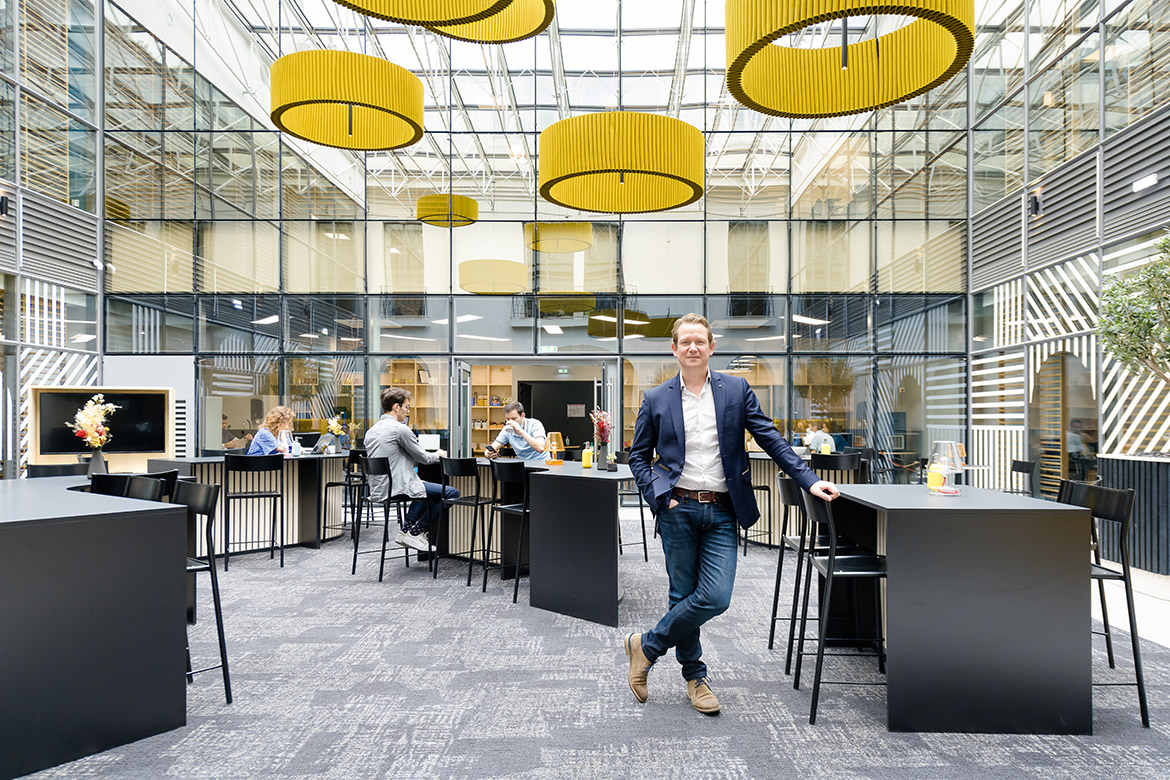
What was the reaction from those around you at the time?
My dad’s advice was very clear: “Go and mess up at other people’s companies before you start messing up your own”. The majority of my classmates thought I was a bit wacky. They wondered why I chose not to wait until after graduation. I didn’t mind their reaction, as I wasn’t particularly trying to fit into any mould. Some praised my audacity but deep down I knew I was just being irresponsible! That was 20 years ago though, and I bet people’s reactions would be quite different now.
What have been the key milestones along your career path so far?
When I graduated in 2004, my company Artiss employed 4 members of staff. In 2005 we had grown to 10 when Gilles Certoux put me in touch with Arnaud Chegnaux, a fellow Audencia alum. Arnaud had set up Intuiti in Nantes with his business partner. Their company was offering SEO optimisation and mine was building websites able to grow a customer base. As our offering was complementary, we naturally joined forces and merged our companies into one in 2006. In 2013, we were managing 20 people. But my partners decided to move on to other projects, so I found myself leading Intuiti on my own for 3 years. This was like a crash course in leadership: I had to learn to be on my own again, which was tough, and to focus on team management. I then left to start a fruitful collaboration with an industrial group from Western France – Idea, led by Bruno Hug de Larauze and after a year together we founded a start-up called Fifty Truck. Two years later, we sold it to a logistic company interested in our technology. My latest venture launched in December 2018 is O°Code, of which I am co-founder and VP Marketing.
What spurred you on to move from one project to the next?
Each time, there came a point where I felt I’d come to the end of the line. I had developed different interests and I couldn’t manoeuvre the company to bring it in line with my changing needs. Entrepreneurship demands so much energy that you really need to have fire in your belly. Plus, if I am not learning as much as I used to, I worry that my performance will suffer and this may have a negative impact on the company. There’s nothing quite like old habits to hinder progress. As a leader, you want to embody the change that you seek, so I always know when the time has come to move on.
You are clearly very invested in the companies that you lead. How do you cope mentally?
To me, there is no other professional experience that provides as much adrenaline as business creation. But it can be a lonely and stress-inducing journey. For example, I achieved some exciting growth with Fifty Truck, but I also had major setbacks with it. I had been sailing along, almost in cruising mode, with Intuiti, and managing a big team. So going back to being hands-on again was daunting. It was intellectually challenging, and at times totally draining. I had a lot to learn in a short space of time about the worlds of logistics, data and sustainability. It’s not easy to put yourself on the line at the age of 40.
I have gone through some very unsettling phases too. At times I’ve lost my self-esteem and questioned my professional abilities. For several years, I was paralysed by anxiety attacks which at the worst point made me bed-ridden for three months.
I was lucky to have the support of my family, and I took a coach which helped a lot. Then, naturally, things got better: I enhanced my technical knowledge, I found the right angle from which to tackle a challenge, and my company achieved wider recognition.
I am now much wiser when it comes to striking a healthy work-life balance. Sport is essential to my wellbeing. And clearly, helping others on their entrepreneurial journey gives me the sense of purpose I need.
Is it the reason why you are involved in so many networks and mentorship programmes in the Nantes region?
Yes, absolutely. Aside from my work, I have managed La Cantine Numérique, Imagination Machine, and I am the president of “Réseau Entreprendre Atlantique”. I cannot imagine a career where I would just seek success for my company without giving back to junior start-up founders. Frankly, it is as stimulating for me as it is for them! I like to carve out my 7.30-9am slot for mentoring the people I support and give them my full attention before my working day starts.
I also feel responsible for supporting the territory I operate in and making our local ecosystem as dynamic as possible. Firstly because it will benefit my company. And also, because entrepreneurship can be quite a solitary experience, I find exchanging with my peers very enriching.
I am convinced that, to build a valuable network, you must start by being generous with your time, by volunteering, and becoming a mentor. You will most certainly reap the rewards for your own career benefit and forge friendships along the way too.
I rarely decline a meeting request because, most of the time, the meeting ends up being fruitful in some way…. This drives my wife crazy! But my most interesting ideas have never come whilst sitting behind my computer.
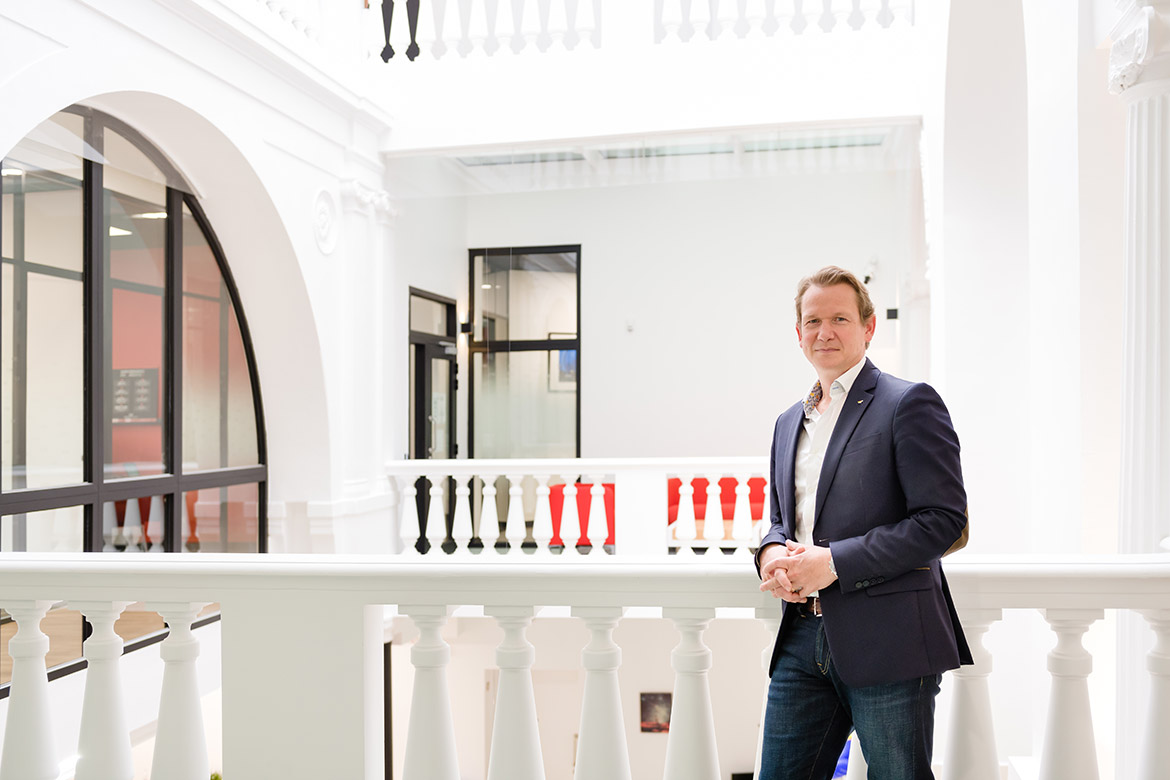
What advice would you like to send to the students at Audencia who are itching to start a business?
I would say go for it, jump, and don’t look back. At twenty something, the stakes are low, you don’t have much to lose, and no one will judge you if you fail.
To me, what makes a good entrepreneur is the ability to constantly analyse and adapt to the market’s topography and opportunities. Paradoxically, I think now is a fantastic time to start a business. Our world is on the cusp of a momentous shift, with a heightened sense of anxiety which paralyses some people, while empowering others. This crisis also brings with it a whole new set of constraints, but constraint is exactly what drives innovation! This groundswell has made space for a new way to consume, do business, and to treat collaborators.
I would also encourage students to look beyond the stereotypes of the entrepreneur often conveyed in the media. Aspiring entrepreneurs should be aware of the struggles, sacrifices and hard work that come with building a business from the ground up. But they should not be put off by the cliché of the gregarious tech entrepreneur with a billion-dollar goal. This narrow view actually holds back would-be entrepreneurs from seeing if entrepreneurship is right for them.
And by the way, if you enjoy Nantes, don’t feel that you have to move! It is now a dynamic tech hub so anyone starting a business here is not at a disadvantage anymore. No need to choose between ambition and lifestyle…
What do you think Audencia’s role can be in encouraging the next generation of entrepreneurs?
Cyril Dion rightly says that it is the power of stories that changes people’s habits and beliefs. So, I am convinced that the school has an important role to play in showcasing entrepreneurship beyond the clichés and the glossy LinkedIn profile of the most prominent leaders. By regularly inviting entrepreneurs of different calibres and from various backgrounds and sectors, the school can have a profound impact in inspiring more students to take the plunge themselves. And I would make these talks mandatory!
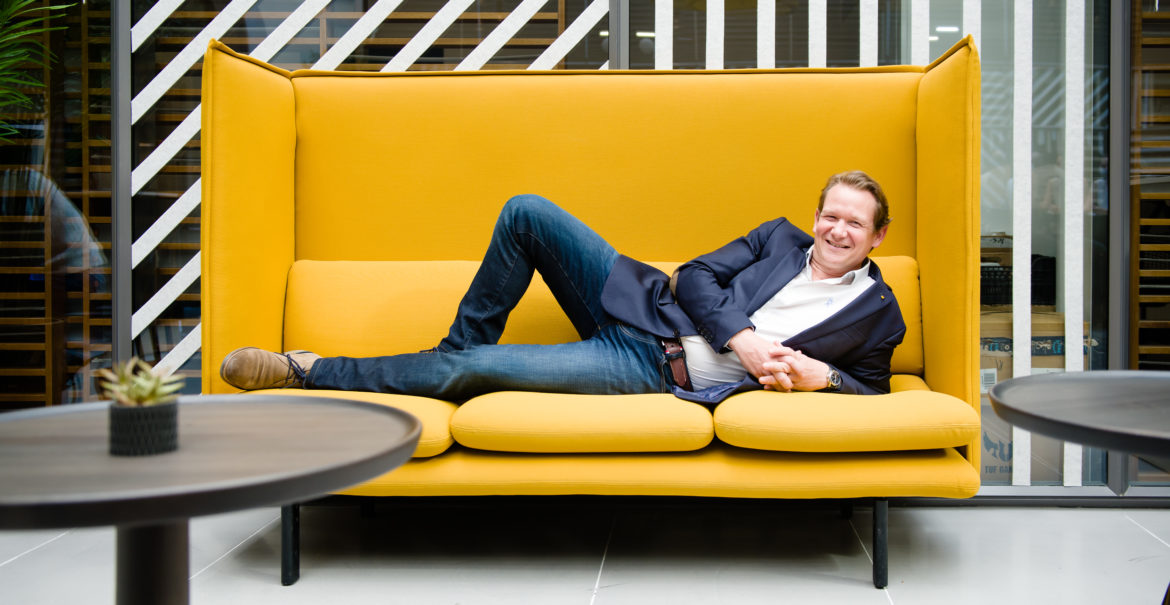
According to you, what measures could Audencia take to be more inclusive in the way it attracts and supports diverse students?
This is a really tough question because there is still little social mixing in our society. I think a club in which students could partner with charities and help pupils in disadvantaged communities could be helpful in bridging the gaps. Students would act not just as tutors but also coaches, to encourage some of the pupils to look at Audencia differently, as something within their grasp.
Where do you see yourself in 5 years?
Well, I see two options for me. Either by then my partners and I at O’Code will have succeeded in making an impact on a global scale. In which case I’ll be running international operations and travelling extensively. Or, if this venture fails, I will develop another idea I’ve had: a wellness centre for entrepreneurs, to help them feel better in their body, head and heart. I would retrain as a nutritionist and the exam is very selective, so I would need to become more academic than I used to be!
Any plan for the weekend?
My plan is to surprise my wife and take her away for the weekend somewhere, so we can enjoy some well-deserved quality time together.
